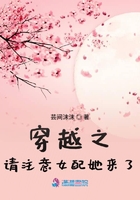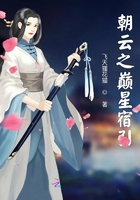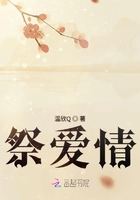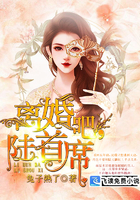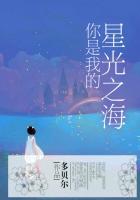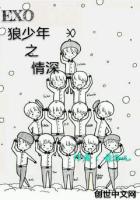"You brought him here! You! David, are you crazy? You!"
"It is through me that he came."
The Girl caught the mantel for support.
"Then I stand alone again," she said. "Harvester, I had thought you were on my side."
"I am at your feet," said the man in a broken voice.
"Ruth dear, will you let me explain?"
"There is only one explanation, and with what you have done for me fresh in my mind, I can't put it into words."
"Ruth, hear me!"
"I must! You force me! But before you speak understand this: Not now, or through all eternity, do I forgive the inexcusable neglect that drove my mother to what I witnessed and was helpless to avert."
"My dear! My dear!" said the Harvester, "I had hoped the woods had done a more perfect work in your heart. Your mother is lying in state now, Girl, safe from further suffering of any kind; and if I read aright, her tired face and shrivelled frame were eloquent of forgiveness. Ruth dear, if she so loved them that her heart was broken and she died for them, think what they are suffering! Have some mercy on them."
"Get this very clear, David," said the Girl. "She died of hunger for food. Her heart was not so broken that she couldn't have lived a lifetime, and got much comfort out of it, if her body had not lacked sustenance.
Oh I was so happy a minute ago. David, why did you do this thing?"
The Harvester picked up the Girl, placed her in a chair, and knelt beside her with his arms around her.
"Because of the PAIN IN THE WORLD, Ruth," he said simply. "Your mother is sleeping sweetly in the long sleep that knows neither anger nor resentment; and so I was forced to think of a gentle-faced, little old mother whose heart is daily one long ache, whose eyes are dim with tears, and a proud, broken old man who spends his time trying to comfort her, when his life is as desolate as hers."
"How do you know so wonderfully much about their aches and broken hearts?"
"Because I have seen their faces when they were happy, Ruth, and so I know what suffering would do to them.
There were pictures of them and letters in the bottom of that old trunk. I searched it the other night and found them; and by what life has done to your mother and to you, I can judge what it is now bringing them.
Never can you be truly happy, Ruth, until you have forgiven them, and done what you can to comfort the remainder of their lives. I did it because of the pain in the world, my girl."
"What about my pain?"
"The only way on earth to cure it is through forgiveness. That, and that only, will ease it all away, and leave you happy and free for life and love. So long as you let this rancour eat in your heart, Ruth, you are not, and never can be, normal. You must forgive them, dear, hear what they have to say, and give them the comfort of seeing what they can discover of her in you.
Then your heart will be at rest at last, your soul free, you can take your rightful place in life, and the love you crave will awaken in your heart. Ruth, dear you are the acme of gentleness and justice. Be just and gentle now! Give them their chance! My heart aches, and always will ache for the pain you have known, but nursing and brooding over it will not cure it. It is going to take a heroic operation to cut it out, and Ichose to be the surgeon. You have said that I once saved your body from pain Ruth, trust me now to free your soul."
"What do you want?"
"I want you to speak kindly to this man, who through my act has come here, and allow him to tell you why he came. Then I want you to do the kind and womanly thing your duty suggests that you should."
"David, I don t understand you!"
"That is no difference," said the Harvester. "The point is, do you TRUST me?"
The Girl hesitated. "Of course I do," she said at last.
"Then hear what your grandfather's friend has come to say for him, and forget yourself in doing to others as you would have them----really, Ruth, that is all of religion or of life worth while. Go on, Mr. Kennedy."
The Harvester drew up a chair, seated himself beside the Girl, and taking one of her hands, he held it closely and waited.
"I was sent here by my law partner and my closest friend, Mr. Alexander Herron, of Philadelphia," said the stranger. "Both he and Mrs. Herron were bitterly opposed to your mother's marriage, because they knew life and human nature, and there never is but one end to men such as she married."
"You may omit that," said the Girl coldly. "Simply state why you are here."
"In response to an inquiry from your husband concerning the originals of some photographs he sent to a detective agency in New York. They have had the case for years, and recognizing the pictures as a clue, they telegraphed Mr. Herron. The prospect of news after years of fruitless searching so prostrated Mrs.
Herron that he dared not leave her, and he sent me."
"Kindly tell me this," said the Girl. "Where were my mother's father and mother for the four years immediately following her marriage?"
"They went to Europe to avoid the humiliation of meeting their friends. There, in Italy, Mrs. Herron developed a fever, and it was several years before she could be brought home. She retired from society, and has been confined to her room ever since. When they could return, a search was instituted at once for their daughter, but they never have been able to find a trace.
They have hunted through every eastern city they thought might contain her."
"And overlooked a little insignificant place like Chicago, of course."
"I myself conducted a personal search there, and visited the home of every Jameson in the directory or who had mail at the office or of whom I could get a clue of any sort."
"I don't suppose two women in a little garret room would be in the directory, and there never was any mail."
"Did your mother ever appeal to her parents?"
"She did," said the Girl. "She admitted that she had been wrong, asked their forgiveness, and begged to go home. That was in the second year of her marriage, and she was in Cleveland. Afterward she went to Chicago, from there she wrote again."







